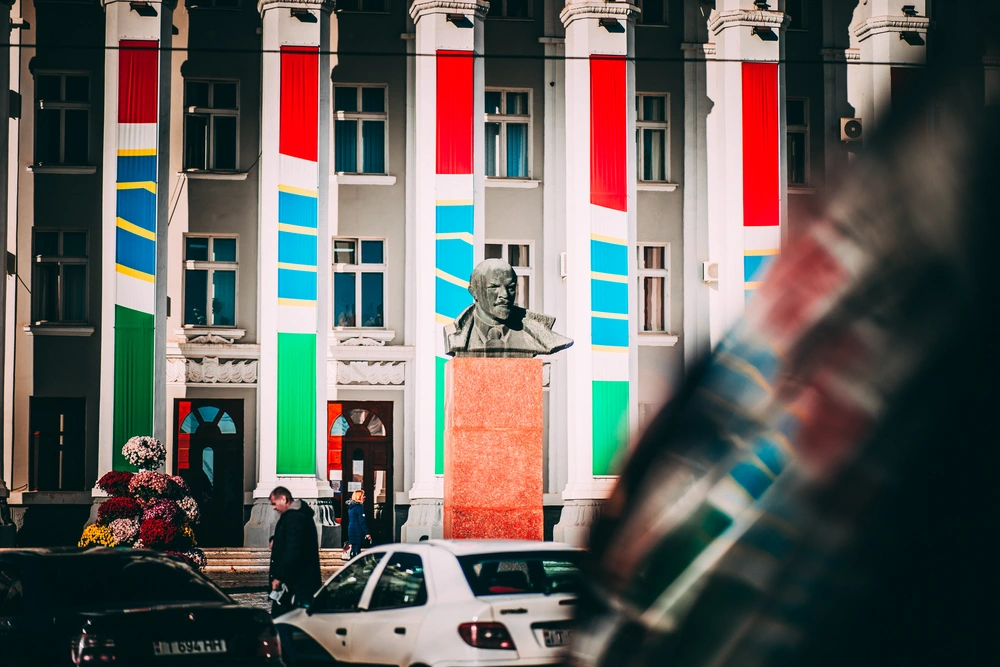
Transnistria, also known as Pridnestrovie «Приднестровье» is a largely unrecognised country sandwiched between Moldova and Ukraine. Almost no one knows of it, and even fewer visit it. Towards the end of 2021 I spend several months in the country stuck in its soviet past to photograph and understand it. Allow me to take you through a country that time forgot.
Our story ironically begins with the breakup of the soviet Union. While originally part of the Moldavian Soviet Socialist Republic, the tiny region (located east of the Dniester river and west of Ukraine) was responsible for 40% of Moldovas GDP as well as 90% of its electricity. Wanting to remain part of the Soviet union, they separated in fear of Moldova reuniting with Rumania or claiming independence. The latter happened and Transnistria became the battle ground for a war in the early 90s, which was won only due to the support of ‘Russian peacekeeping troops‘, who remain present to this day.
Sheriff
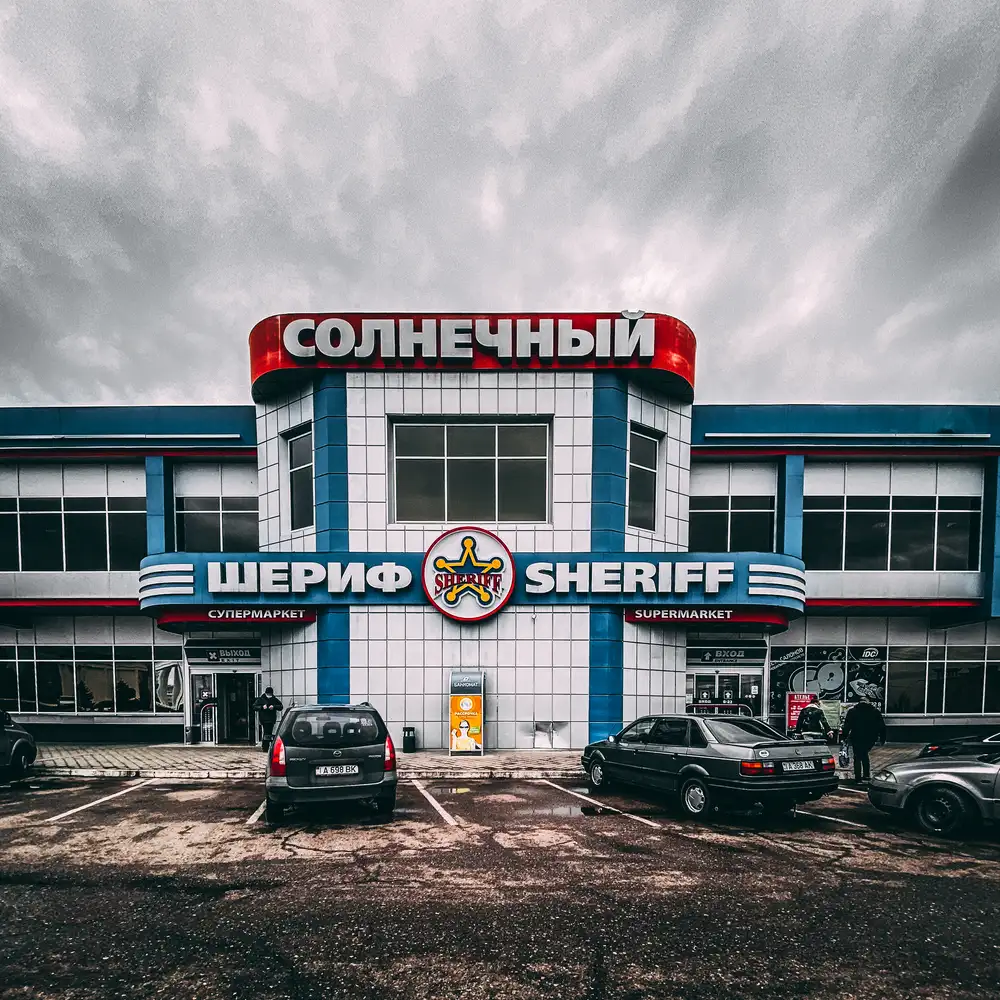
Most communist states reject capitalism.
Transnistria didn’t.
Instead, it embraced privatisation—but only for one company – the rest of the country is dirt-poor.
If you know one thing about Transnistria, know Sheriff. It’s more than a corporation—it’s the puppet master of the entire economy.
Sheriff owns:
- All major supermarkets
- All (major) gas stations
- A football stadium that holds 4% of the population
- The Kvint alcohol factory
- Most TV & advertising & Mobile & Publishing
- Mercedes-Benz dealer
- And two bread factories
A few years ago, a competitor dared to open another grocery store. It mysteriously burned down. Sheriff remained unchallenged.
The traces of its past are still around wherever you look.
Much like in Soviet times, monopolies rule. The only difference? This time, it’s one company instead of the government.
A Living Soviet Museum
The main square of the capital Tiraspol hosts a statue of Russian war hero Suvorov
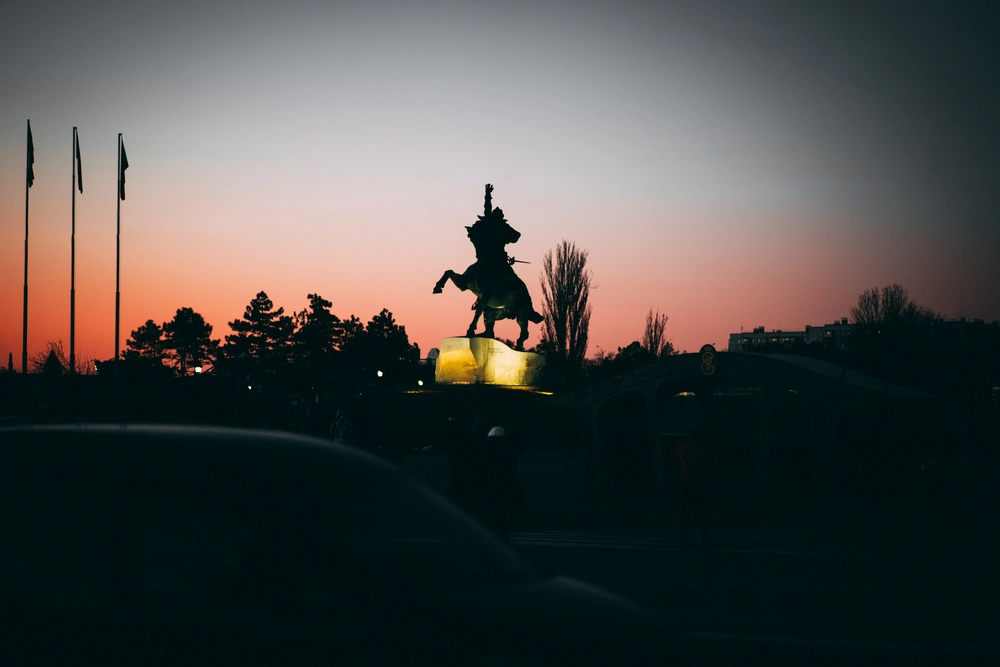
The founder of the Soviet Union is also heavily represented in the two cities (Bender and Tiraspol)
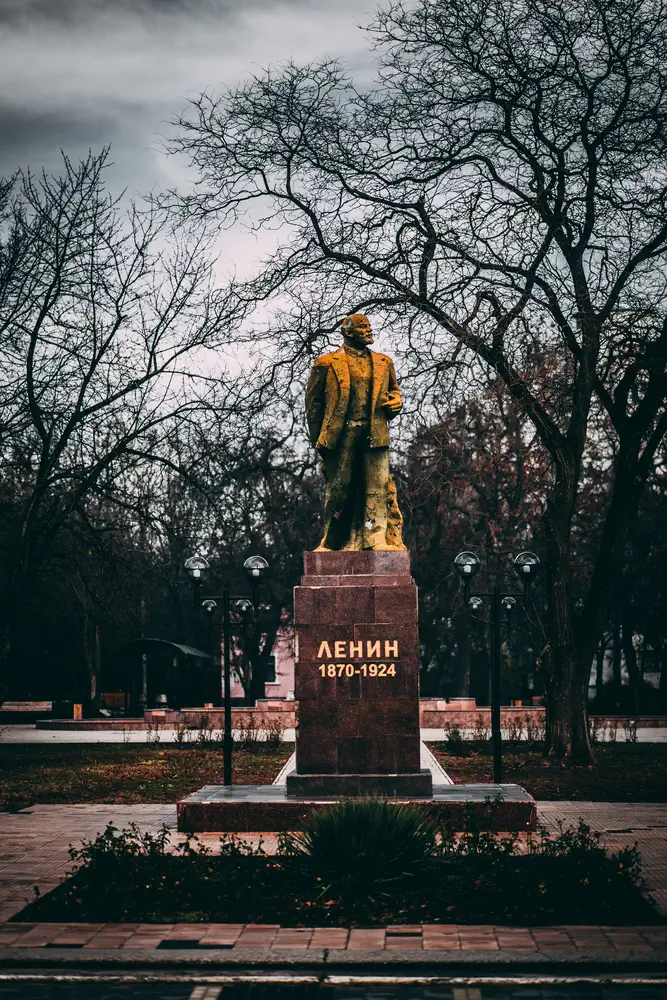
Vladimir Lenin
Vladimir Lenin
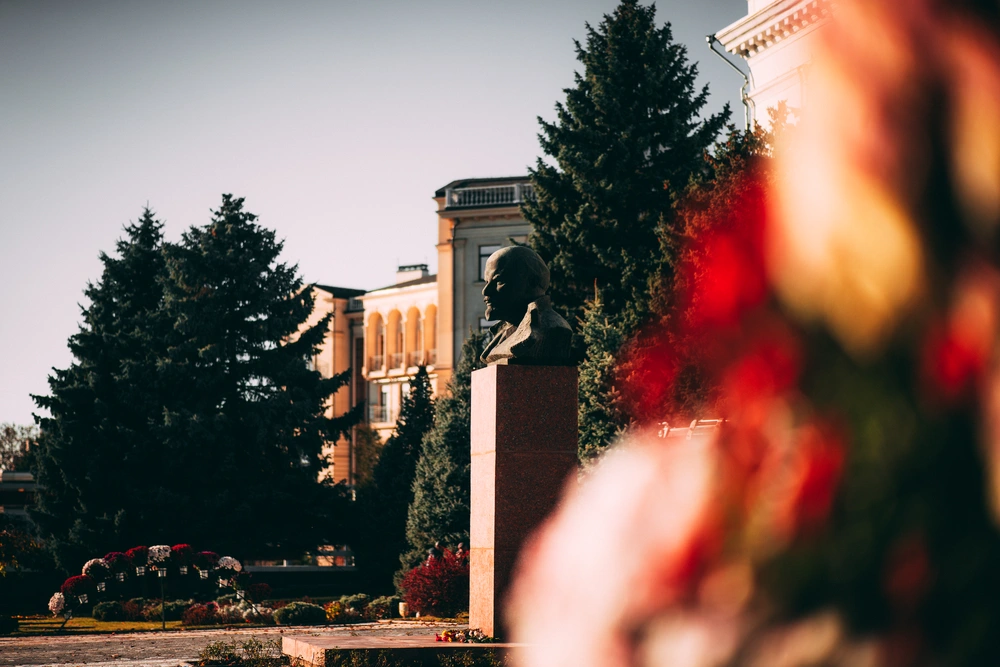
A myriad of soviet leaders and war heroes are immortalized by images and statues
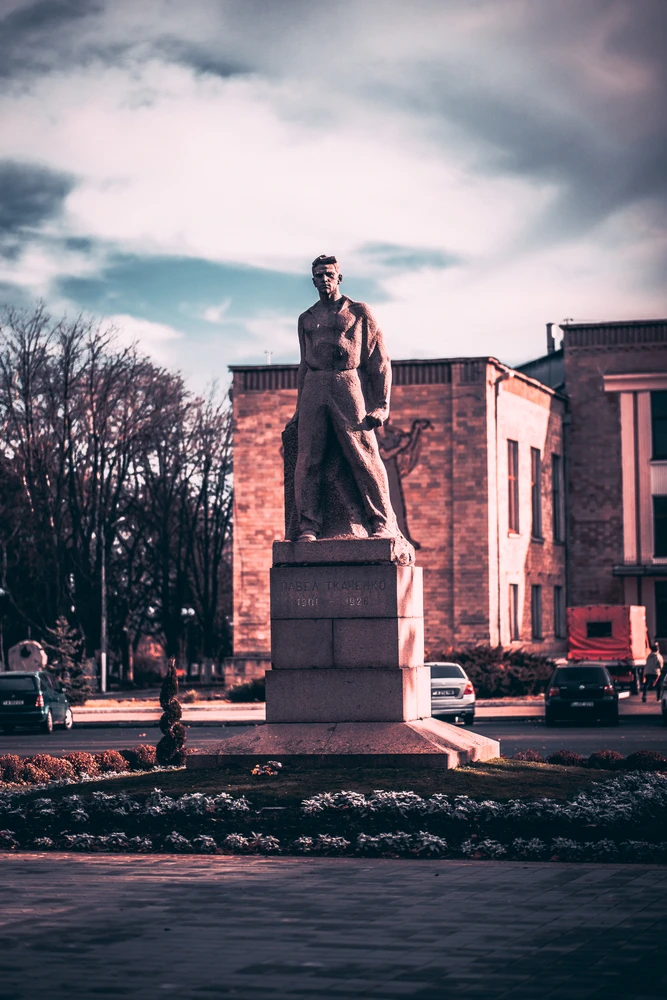
Pavel Tkachenko
Rumanian-speaking soviet leader
Vasily Filippovich Margelov
“father of the Soviet Airborne Forces”
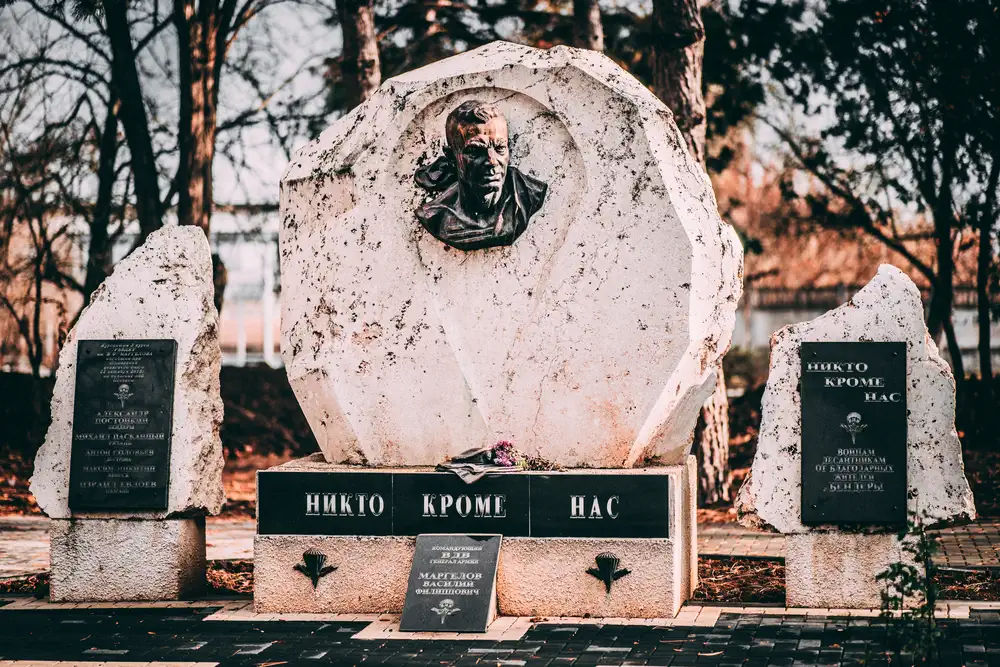
Many things remind of the past, in a country thats still stuck in the soviet times.
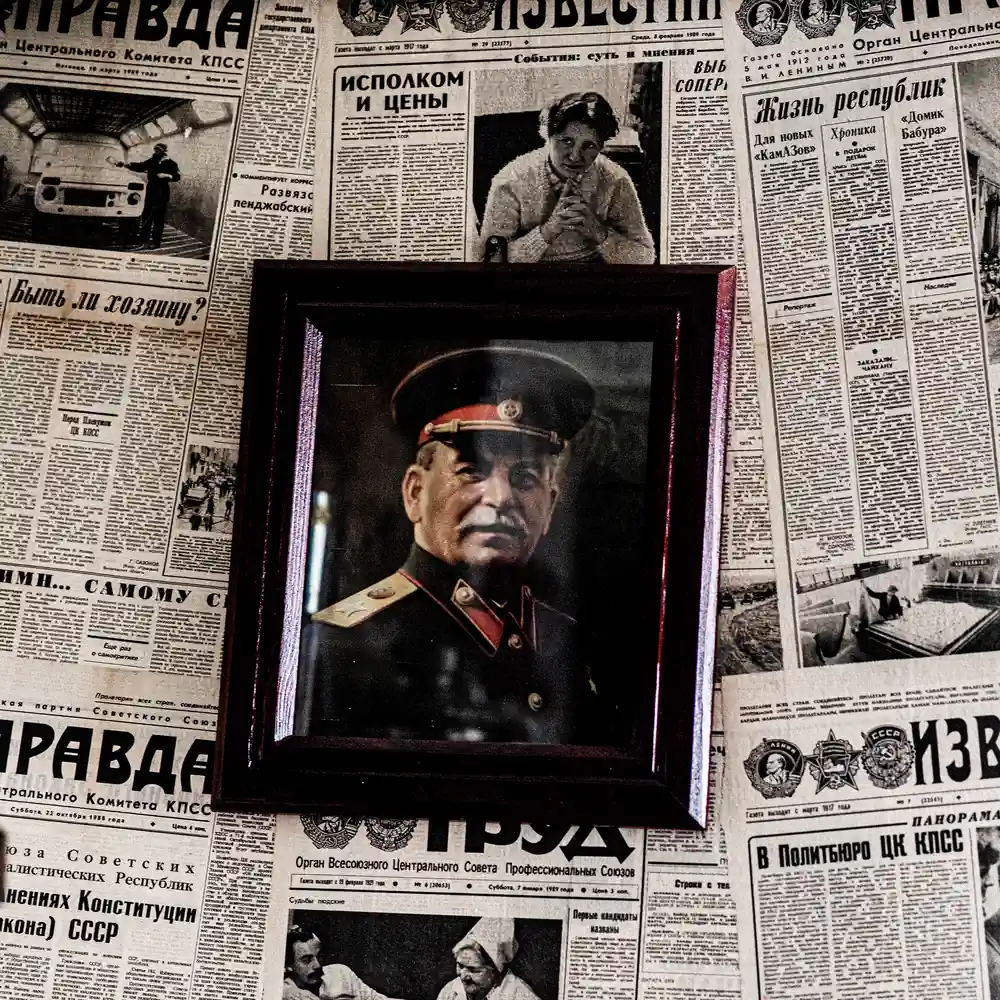
Joseph Stalin
A framed portrait of Joseph Stalin rests on aged Pravda newspapers.
Soviet Industrial Plaque
A factory plaque from 1980, marking the legacy of Soviet locomotive production in Voroshilovgrad, now Luhansk, Ukraine.
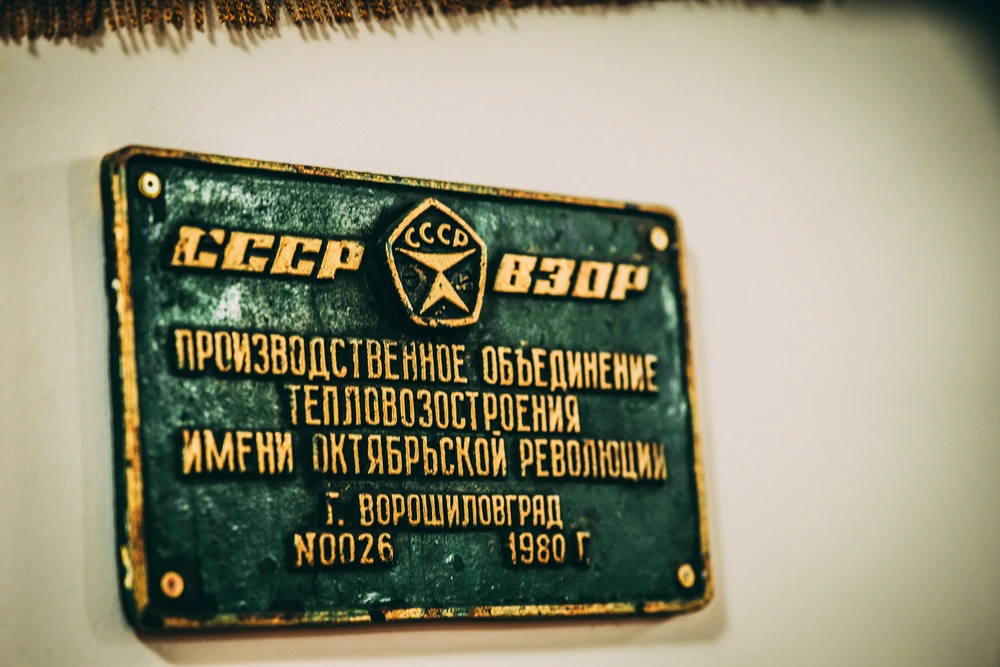
Its statue as a country or even the rulership is complicated, while Russian army as well as flags cover the country, I have my own theory.
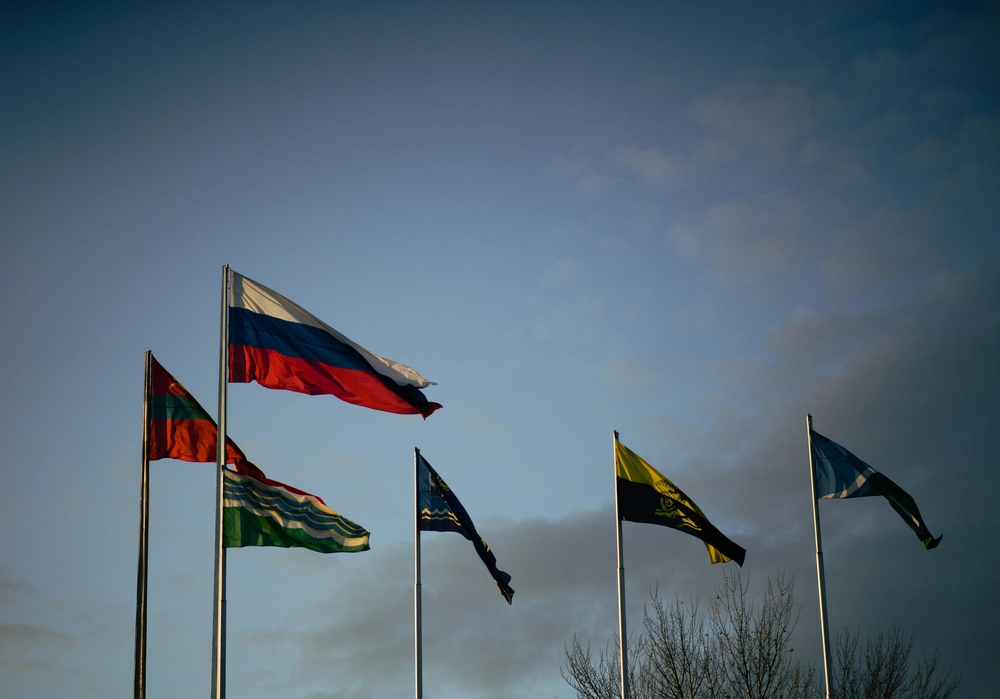
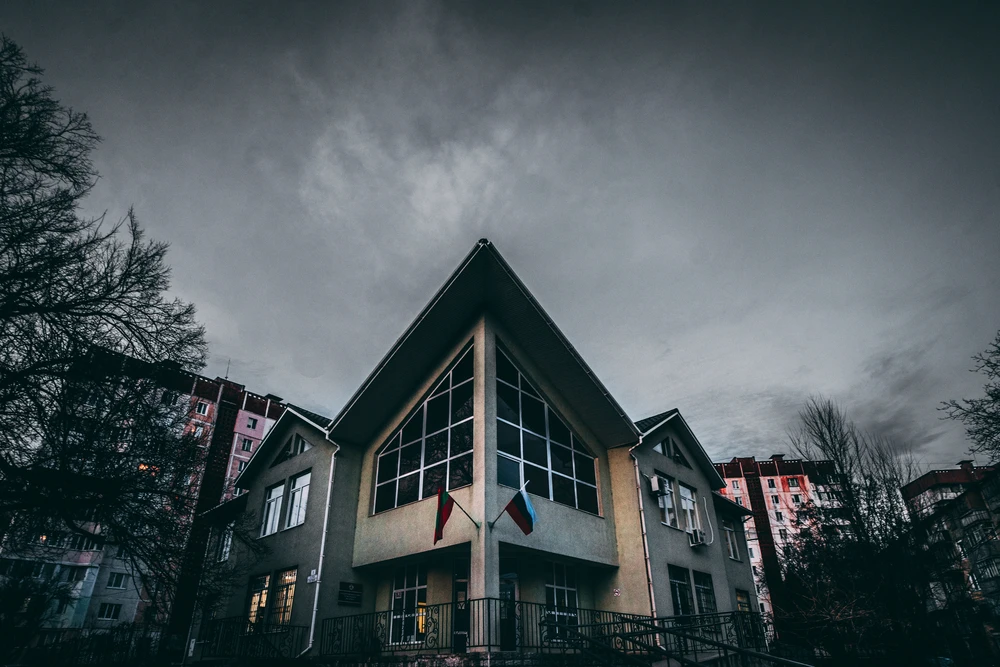
Russian flags in Transnistria
Russian flags in Prednistrovia
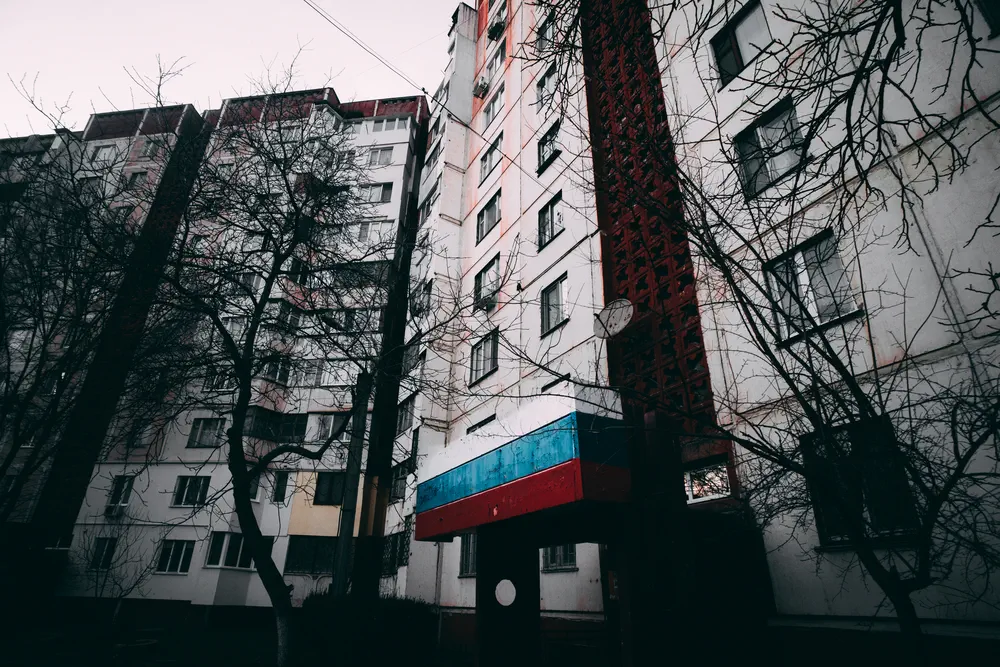
Housing
The past not only brought in old friends, it brought infrastructure and houses. While the rest of Europe is facing a gigantic housing crisis, a house can be bought from $7000 or rented from $80 a month – (almost) free Russian gas included [until Jan. of 2025 that is]
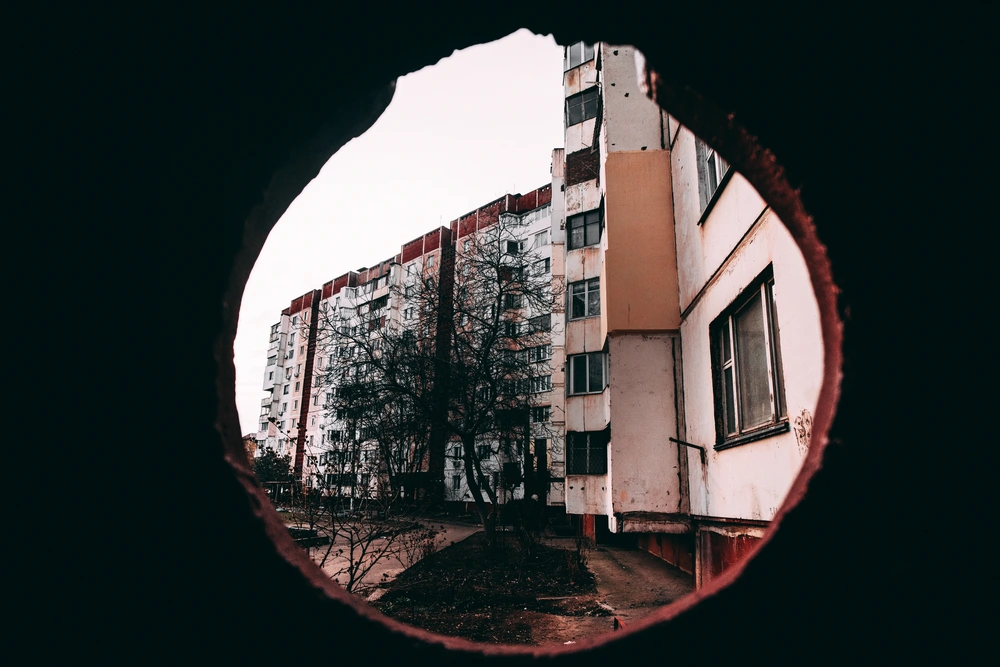
Most of the people are housed in so called ‘Commie blocks’, Khrushchyovka’s.
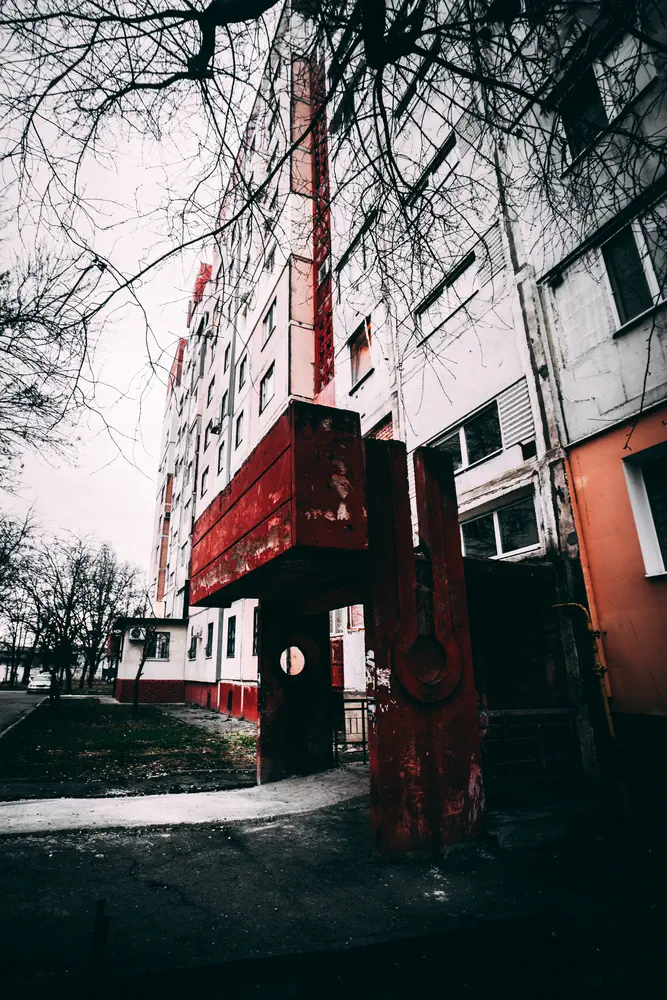
Commie blocks (Khrushchyovka)
Cheap soviet housing – Khrushchyovka
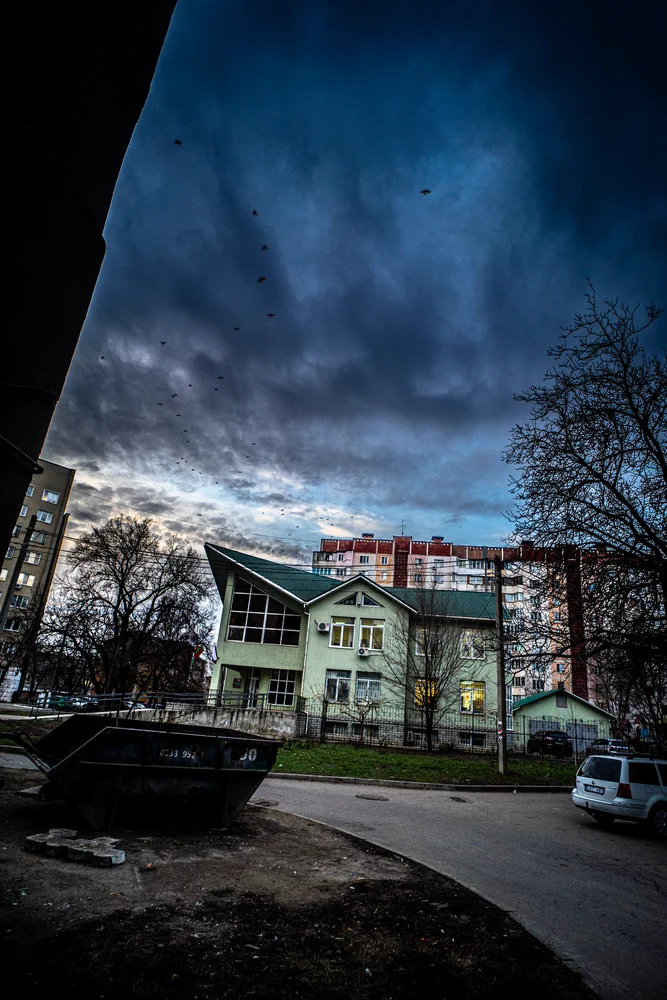
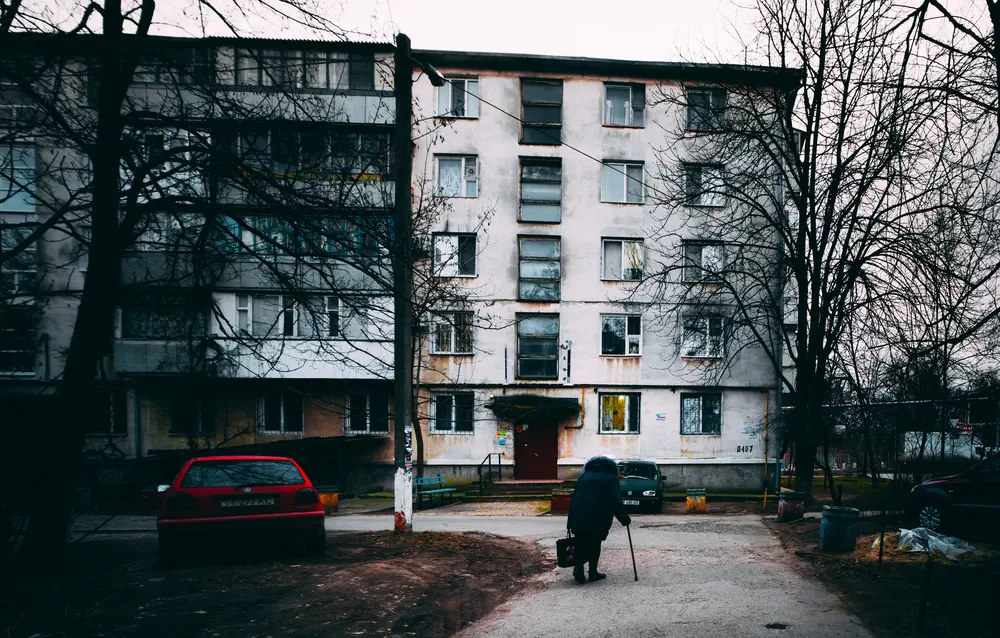
Highly condensed housing made from thick concrete. It was cheap to build, but was supposed to be temporary.
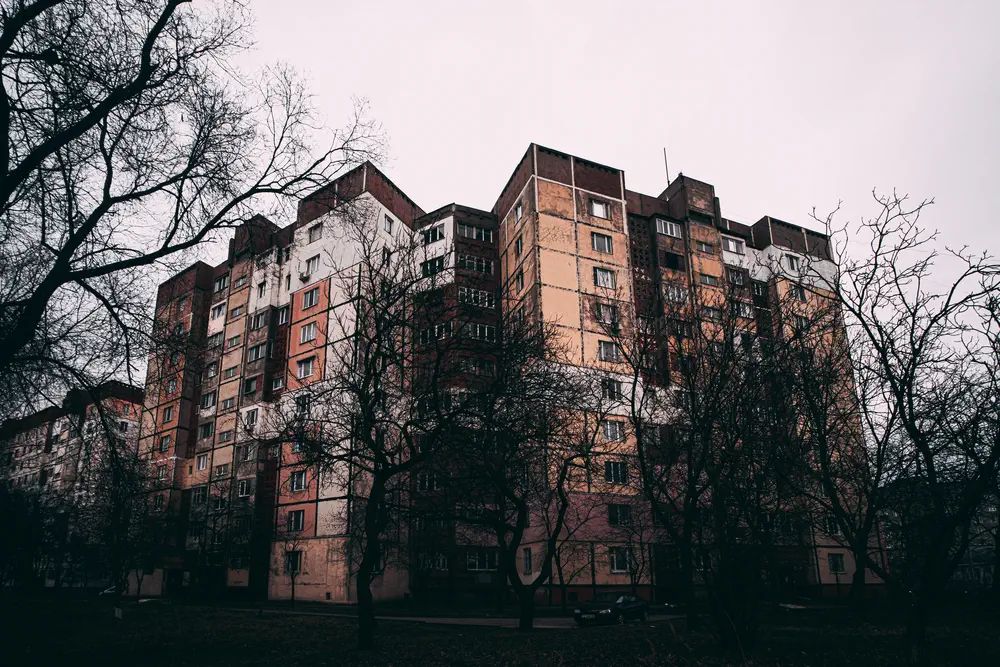
Commie blocks
Cheap soviet housing
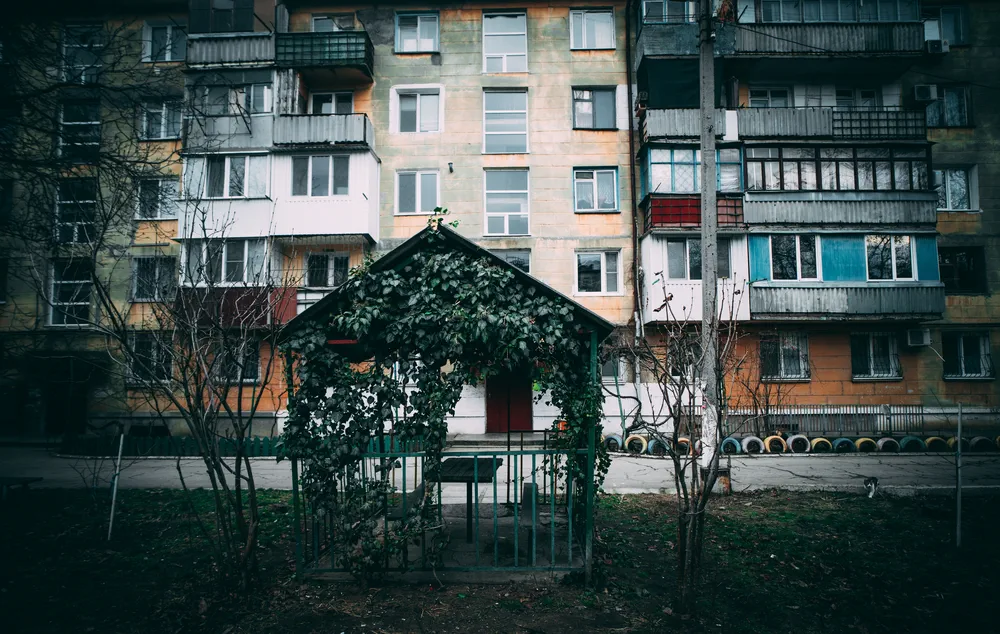
Most of them are five stories tall, the maximum hight that didn’t require an elevator.
Frequently there would be a communal kitchen and bathroom on one floor. After Perestroika, most of the people added private amenities to their little apartment.
Made of concrete, they survived decades of no maintenance and will most likely endure more.
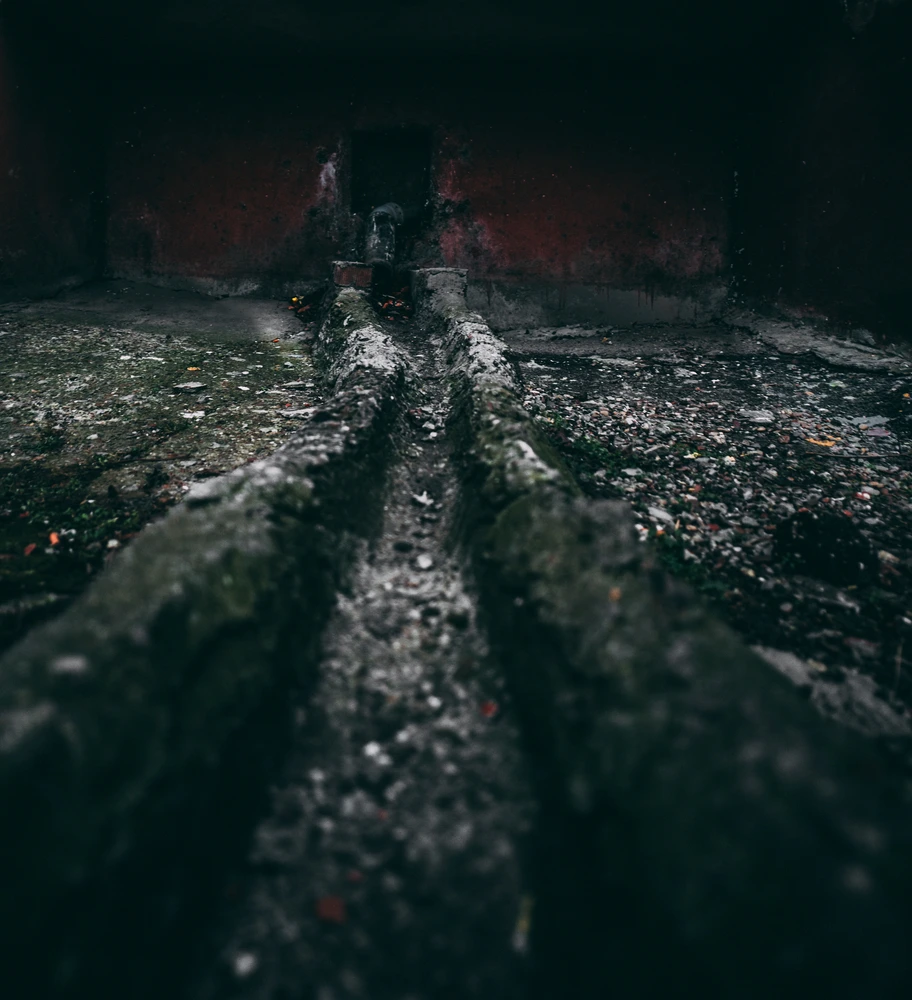
Concrete degradation
Cheap soviet housing
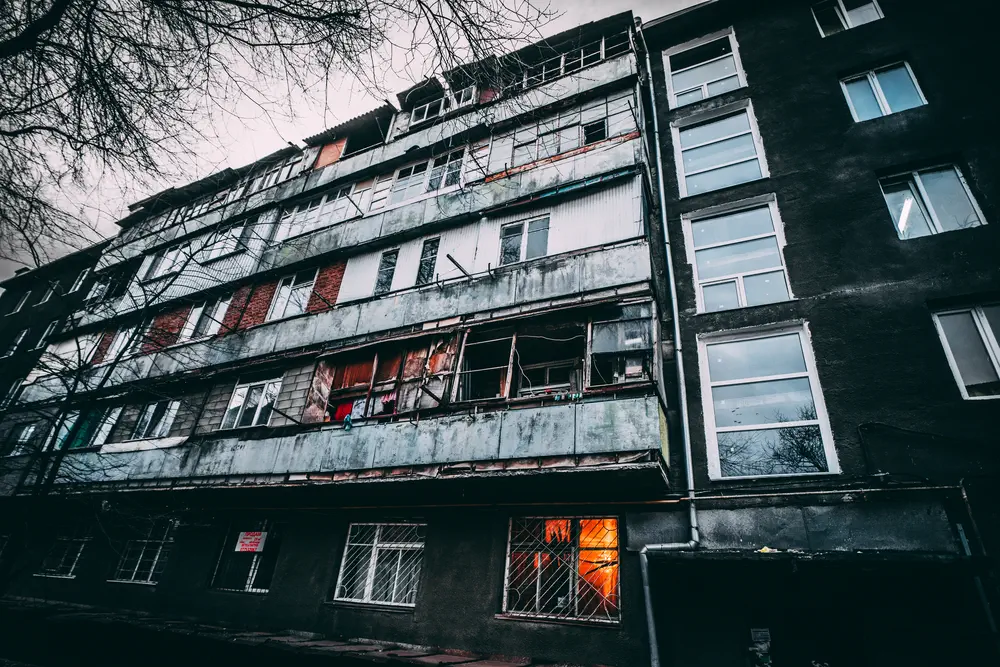
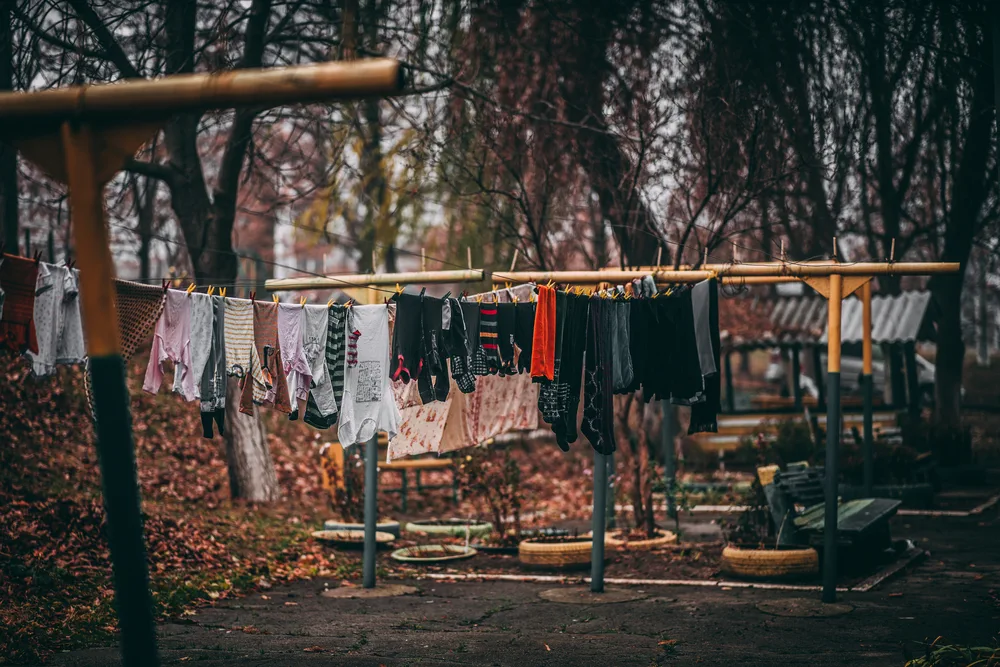
A typical slavic phenomenon is the huge difference in maintenance of the (private) interior of the house and the (public) exterior.
Work – or lack thereof
One of the reasons why housing is so inexpensive in Transnistria, is because most people work abroad.
Advertisements to work in ‘Europe’ scatter the entire country. The economy is not doing great and the only way many people can feed their families is by working often soul-destroying jobs in the EU or in Russia.
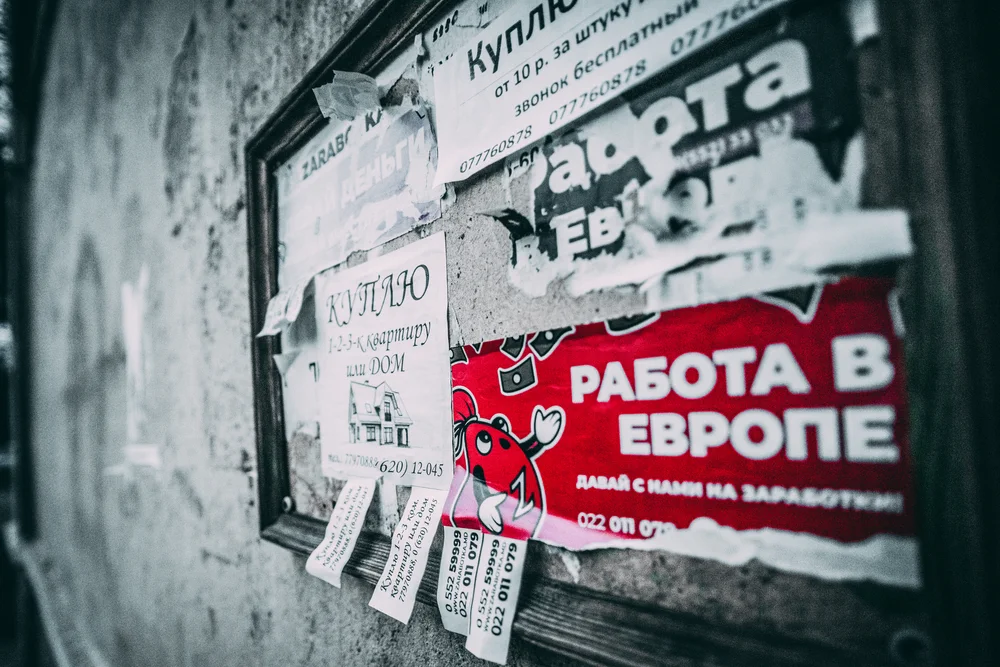
The alternative is to work low paying jobs in this country such as garbage man or a cashier at Sheriff. One look at the state of the infrastructure shows that many people have moved away for better opportunities .
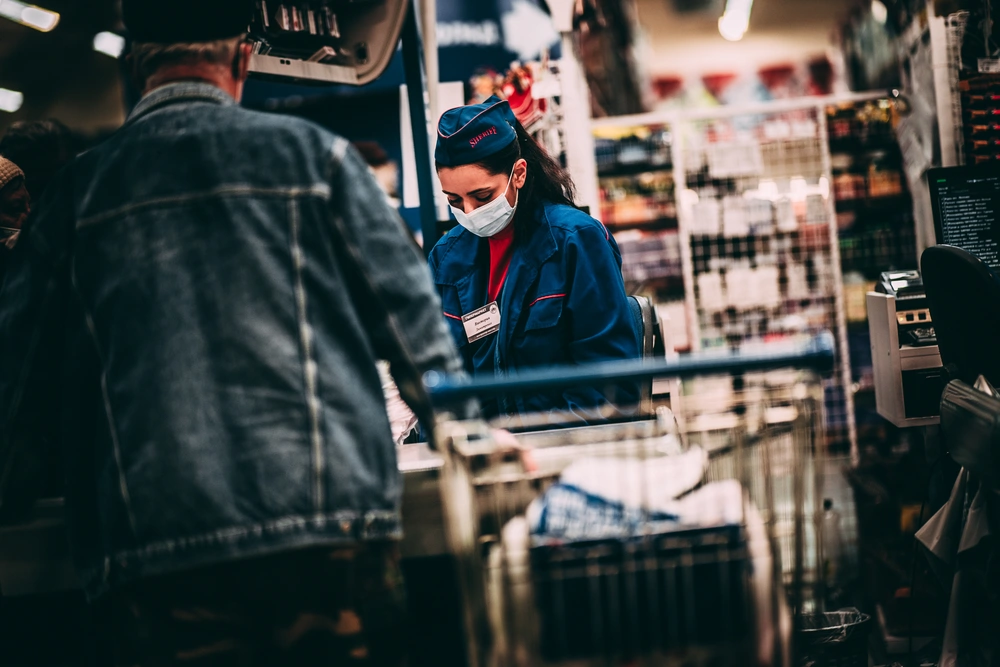
Sheriff employee
Public worker Transnistria
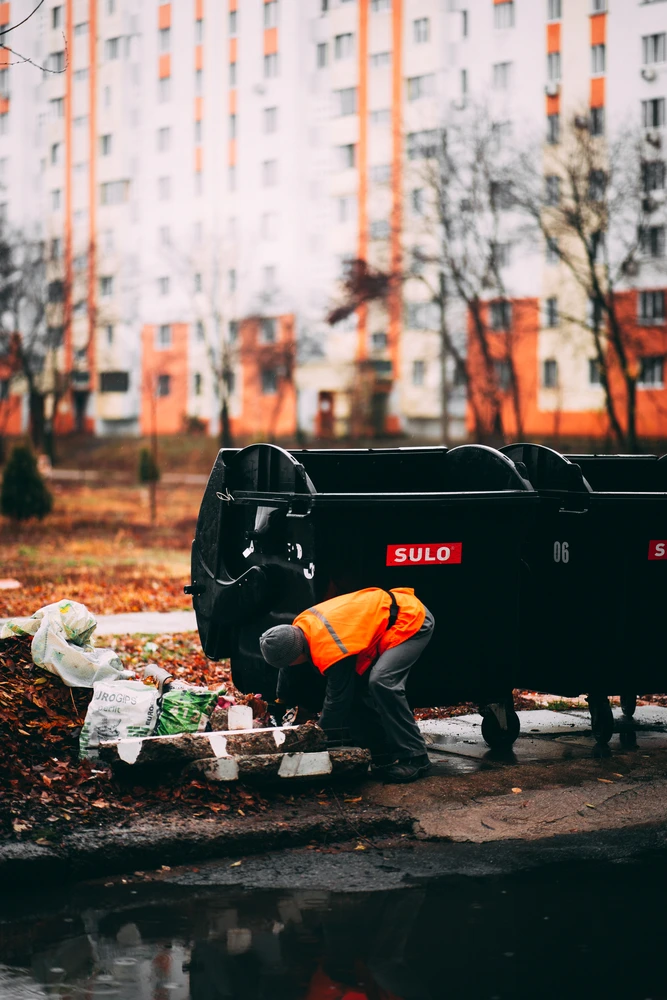
The infrastructure is broken all throughout the ‘country’
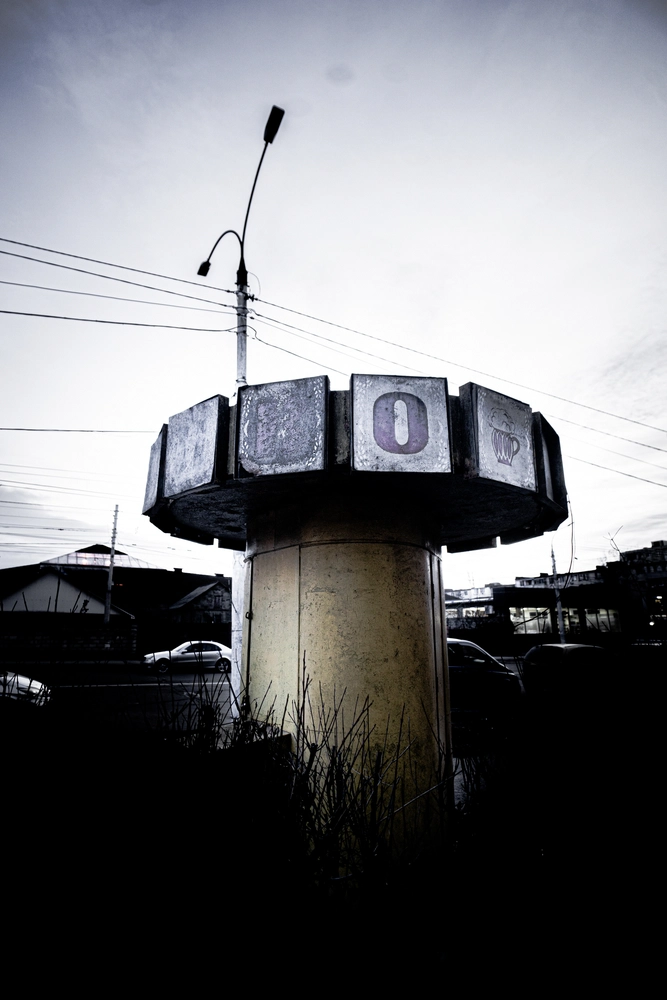
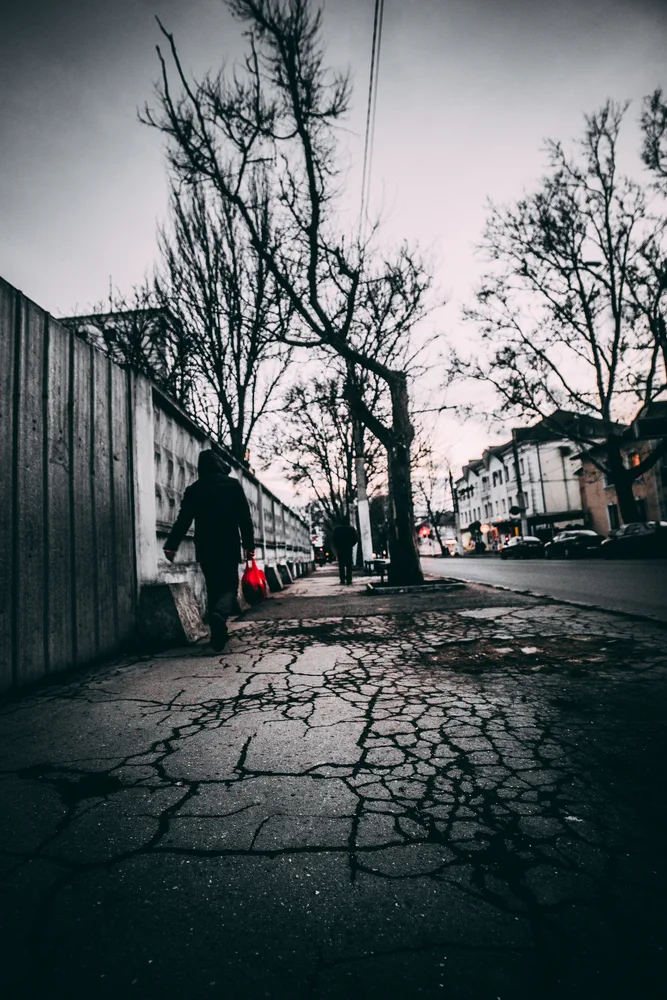
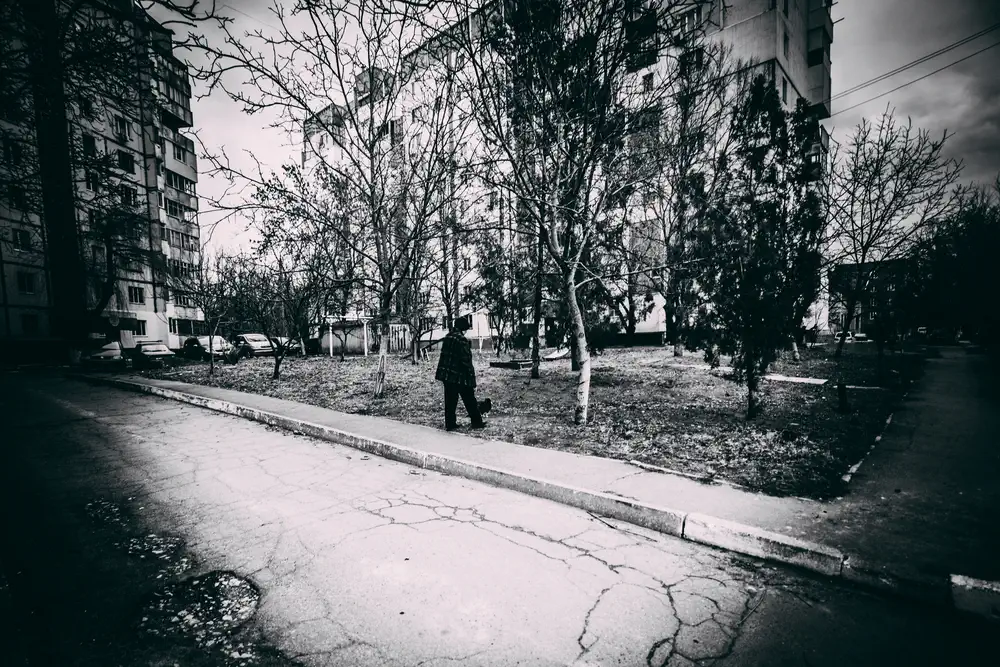
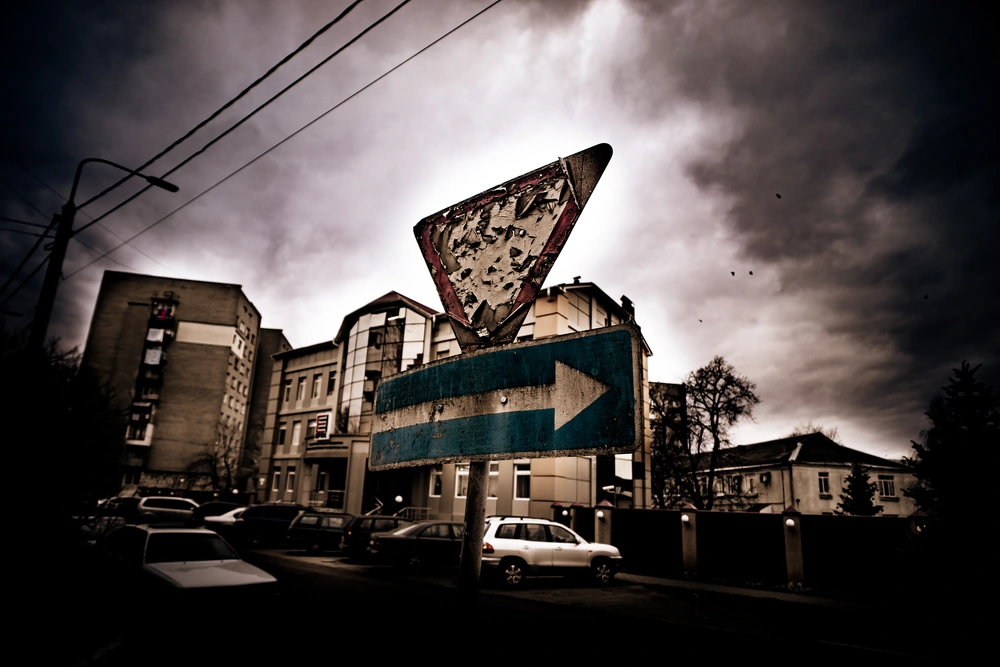
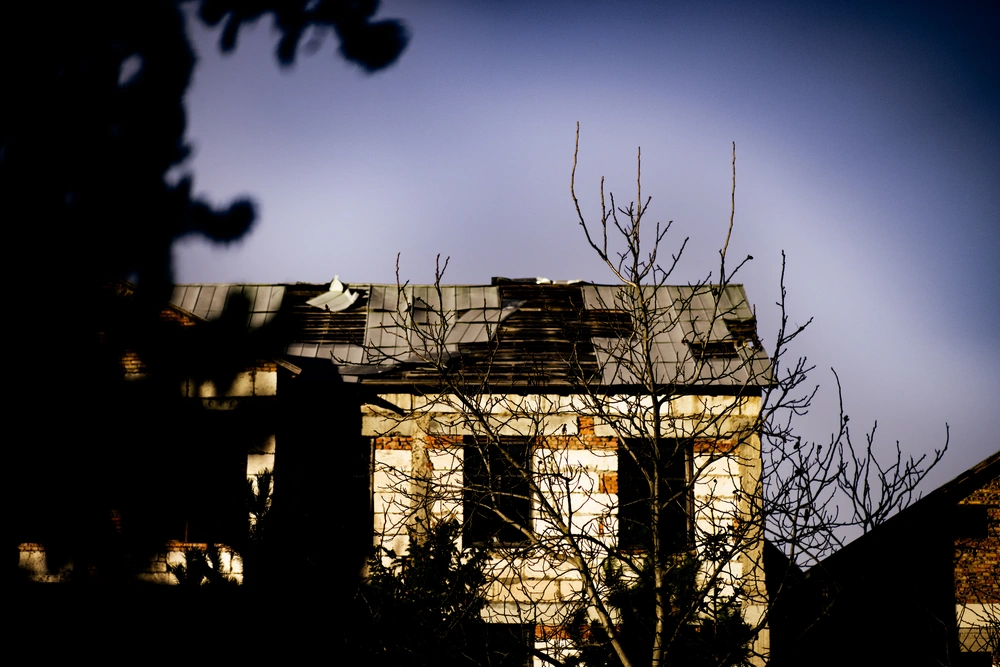
Art Among the Ruins
Yet, even in a fading country, creativity refuses to die.
Wherever there’s ugliness, there’s usually beauty around the corner.
The graffiti scene of Transnistria is very active. Using old soviet bridges or buildings, they make pieces of art.
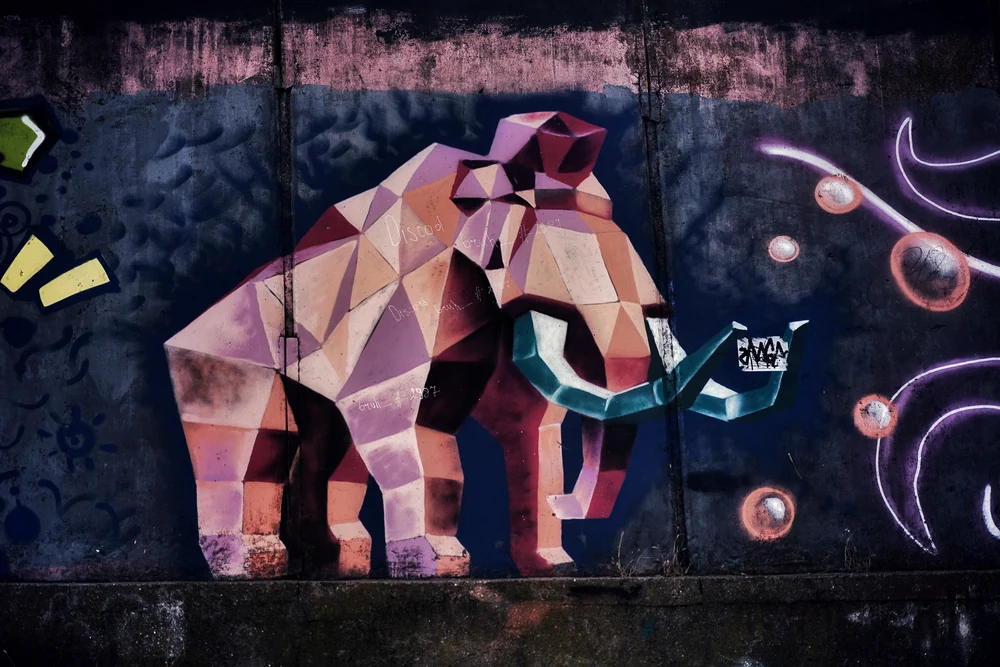
Graffiti in Тигина
Graffiti in Tiraspol
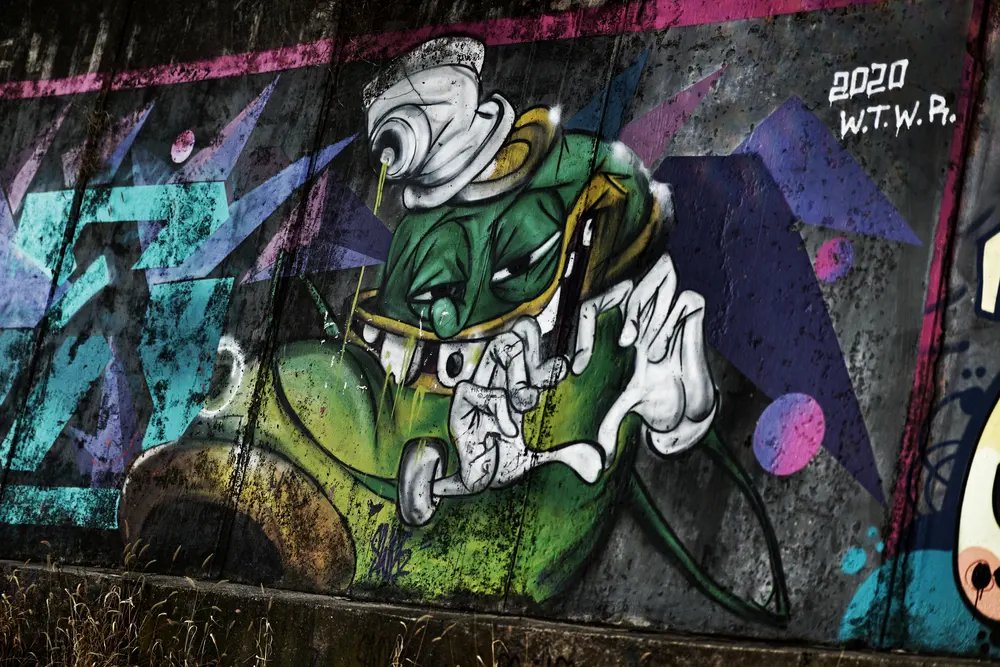
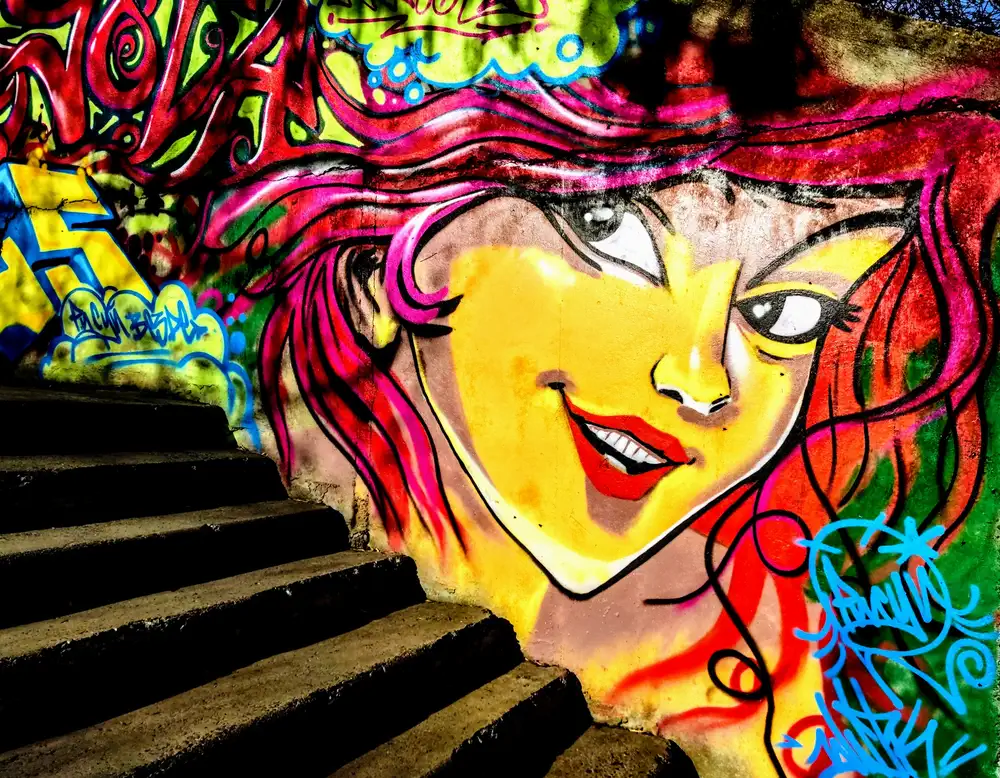
Sometimes its still honouring the ‘old heroes’
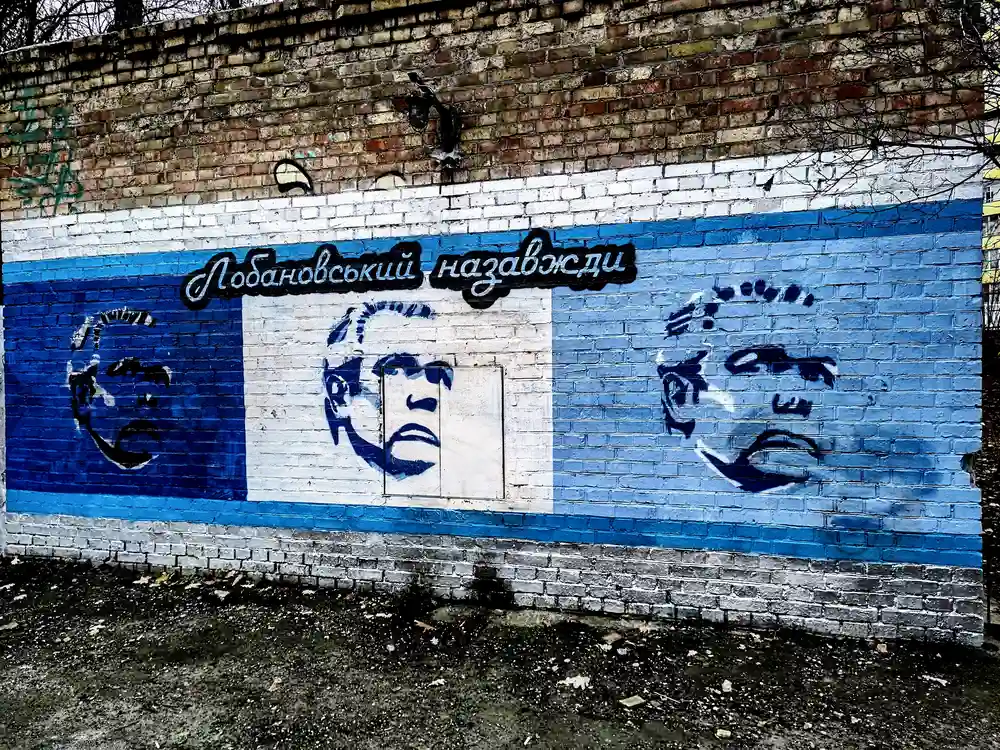
Valeriy Lobanovskyi (football manager)
Such as this artwork of Yuri Gagarin, the first human in outer space
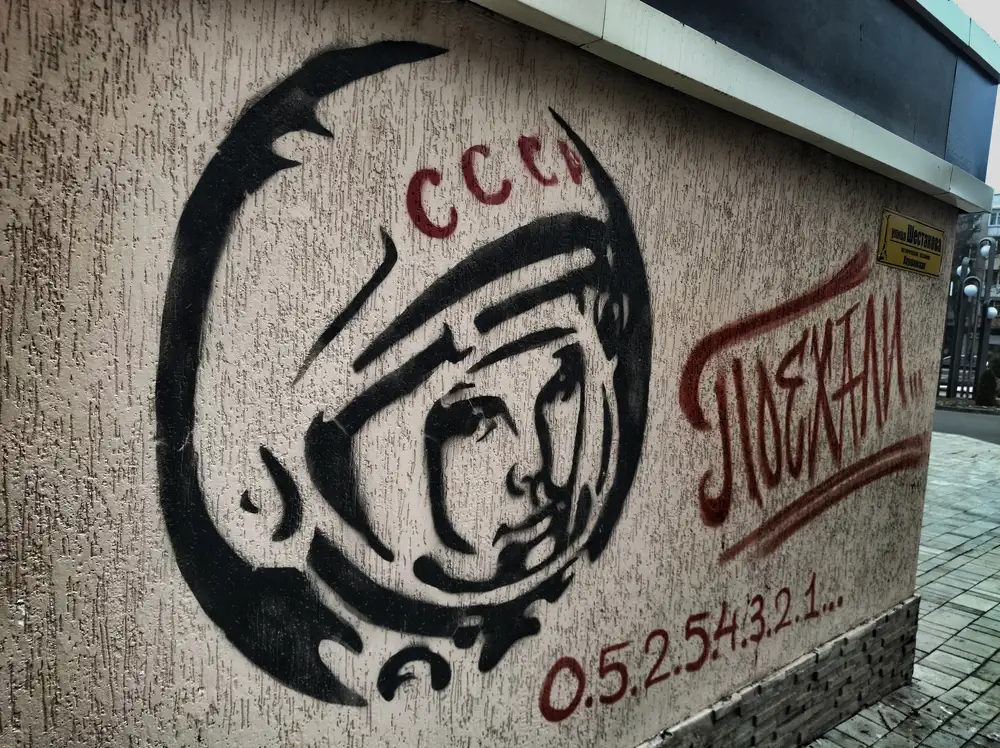
The old world and the new generation exist side by side—one struggling to keep its grip on time, the other spray-painting over it.
Kvint and the drinking culture
Like cheap houses and art, another subsidiary of Sheriff is also always around the corner: Their alcohol factory: Kvint
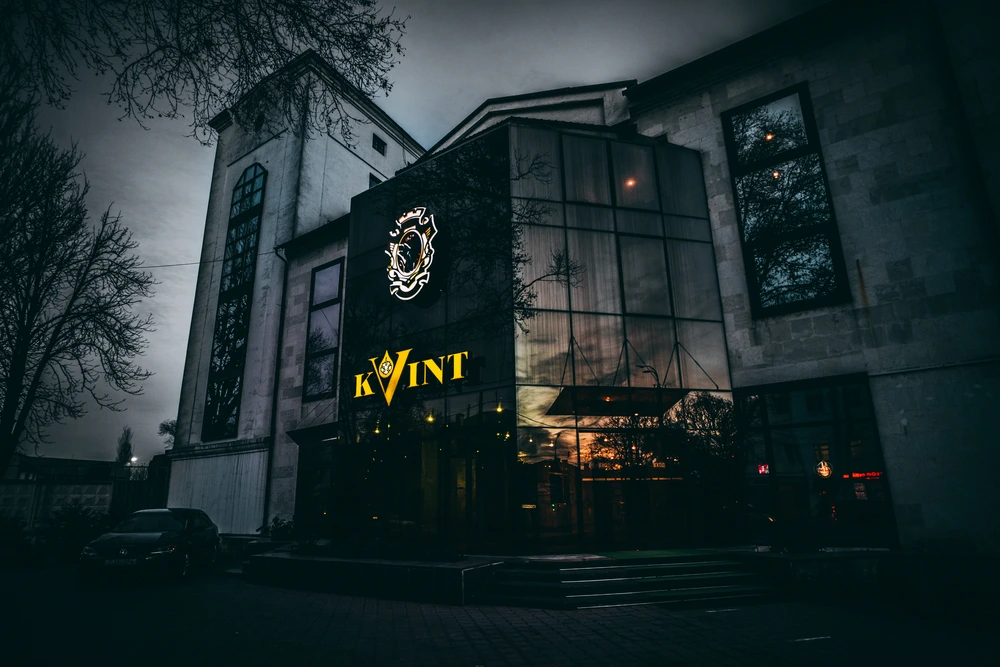
Kvint Distillery
Kvint Distillery
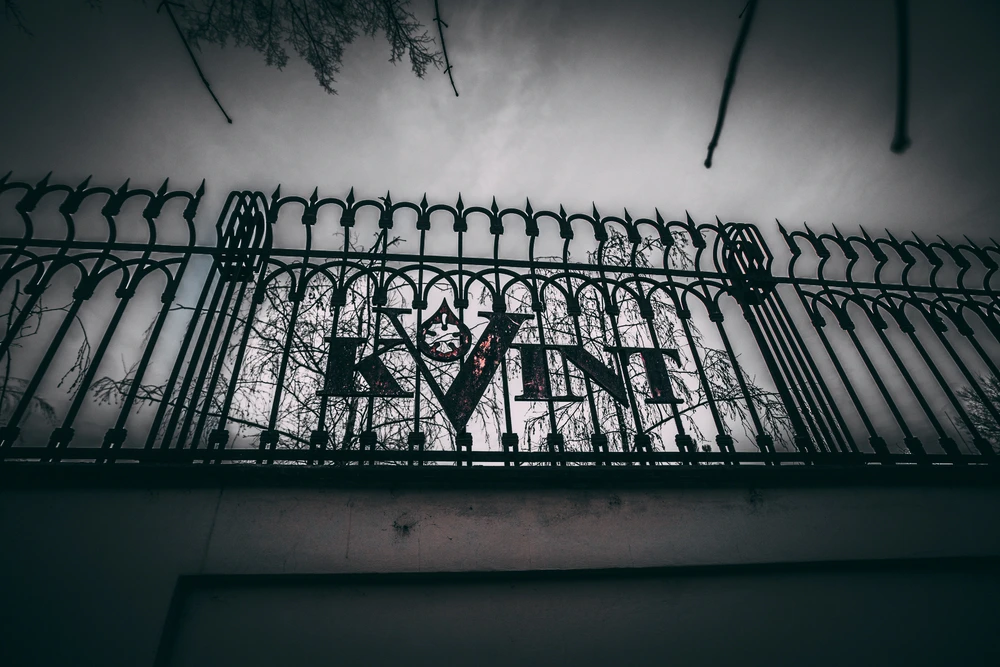
There is a well-defined drinking culture in the ‘country’, and bottle of cognac is found in almost all households for most times on the day.
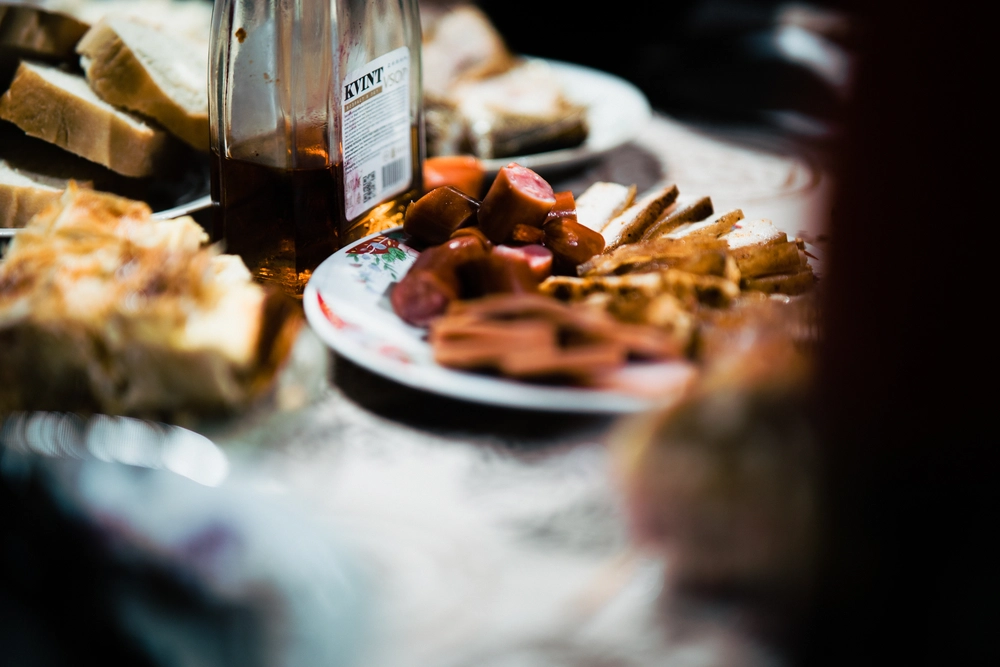
It appears that time has stopped in the country that doesn’t exist
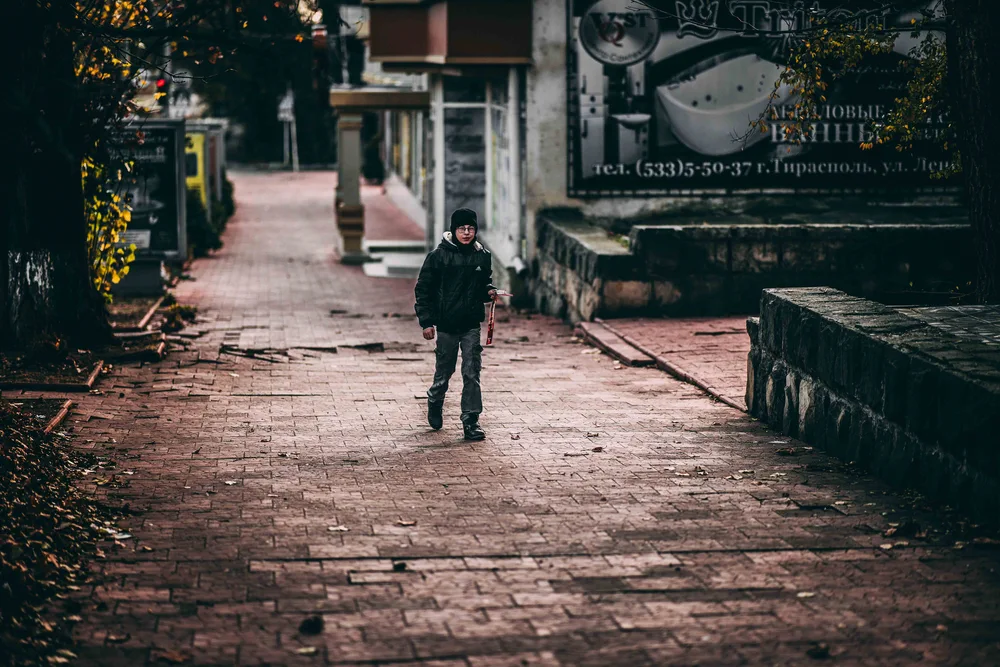
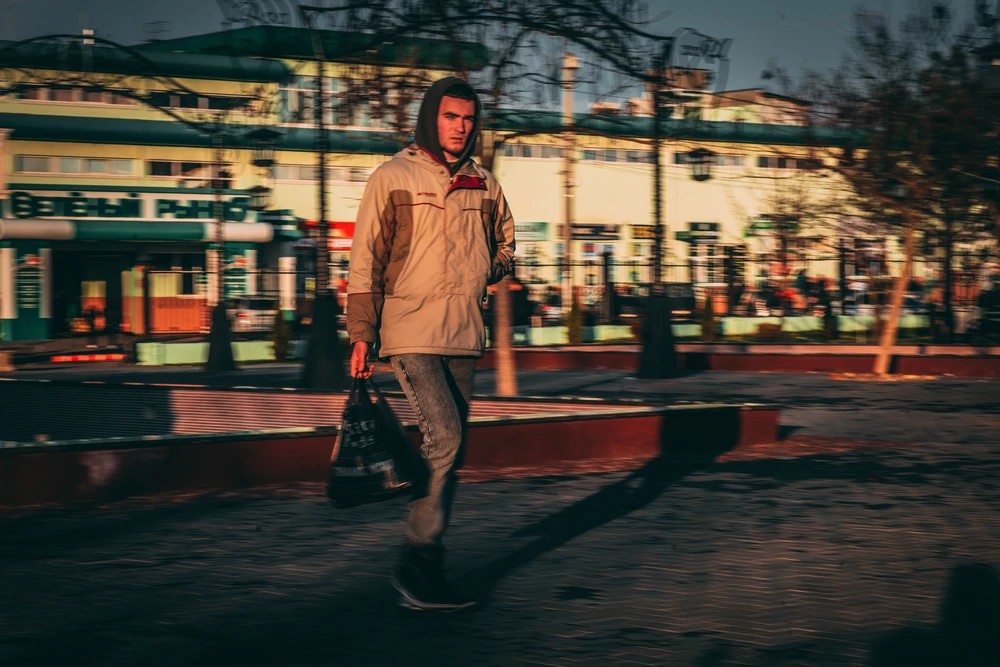
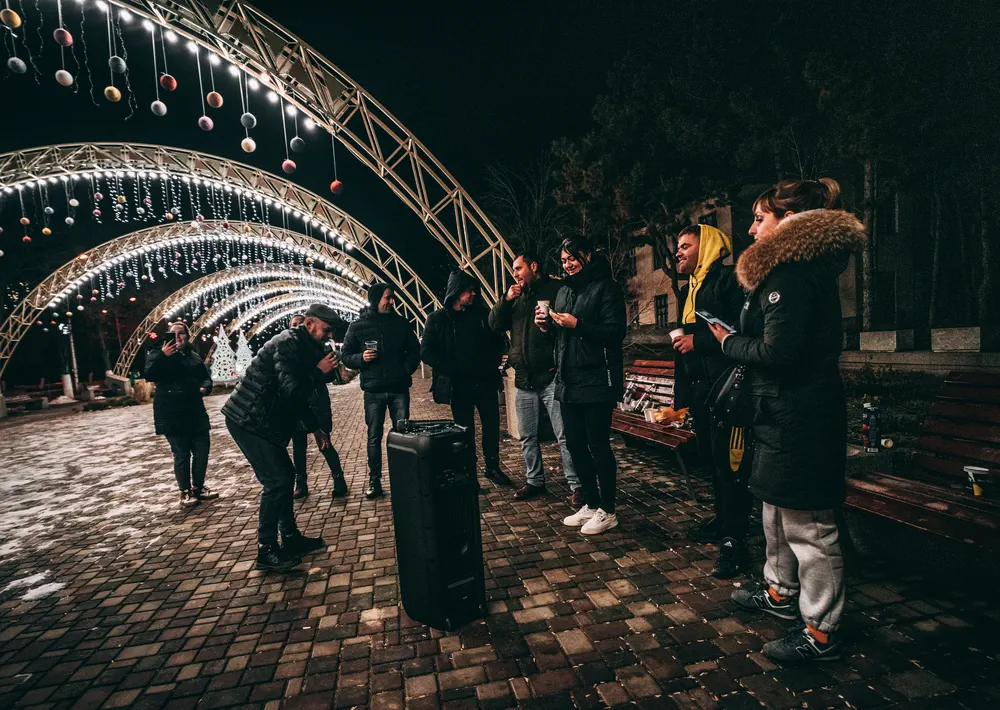
And although a normal person wouldn’t see a future in Transnistria in this poverty, the people remain happy. With a spirit that can’t be broken, they face the harsh winter and times when there’s little food, but dance on the street whenever plays music.
Or just smiling at everyone on the streets, even though peoples tiny Russian pensions barely enough to live off.
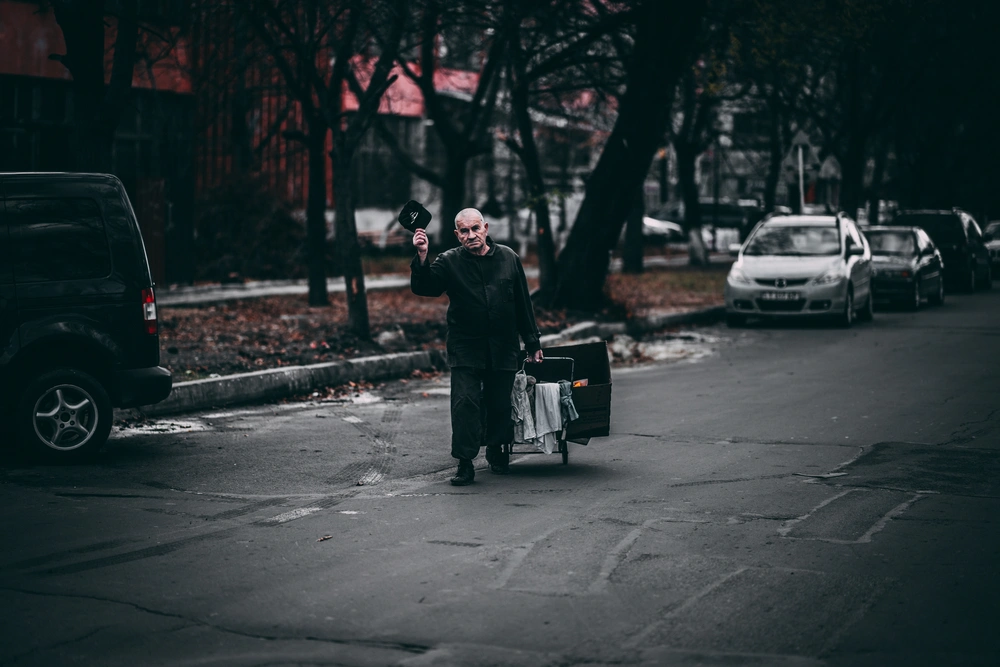
Family is extremely important. Here’s a man playing hide-and-seek with his daughter. Nothing could distract the Transnistrian people from having a good time
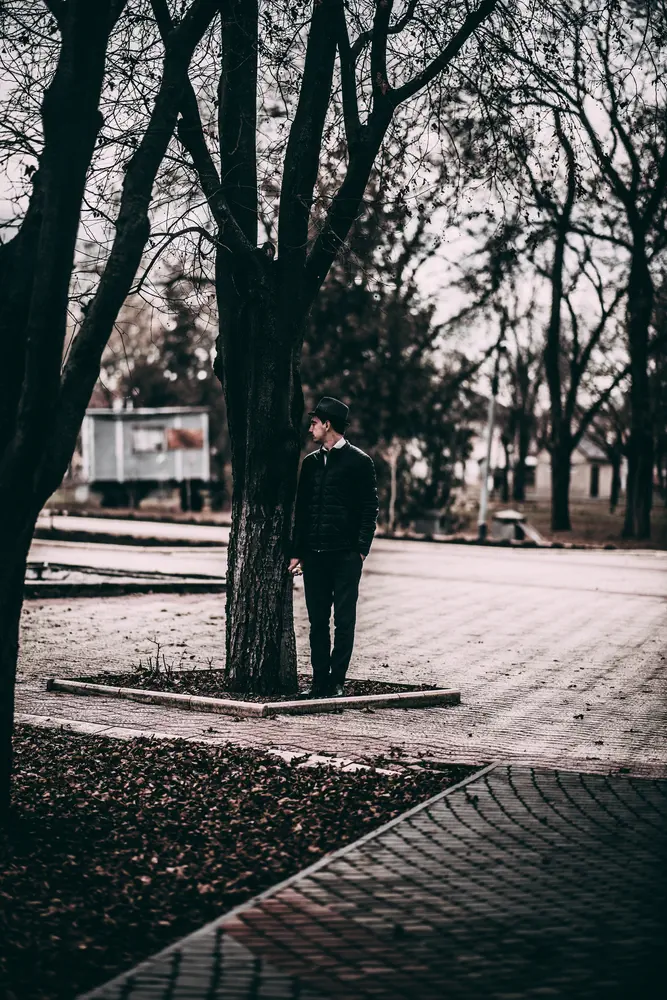
Or from showing up in dramatic photographs.
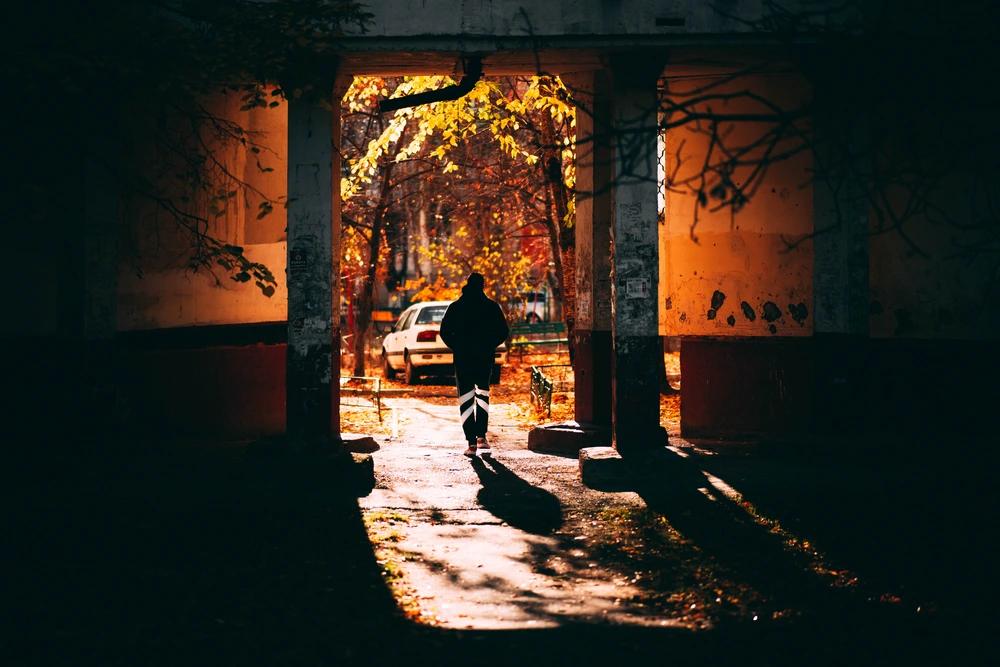
A Future That May Never Come
To outsiders, Transnistria seems like a ghost of the Soviet Union, frozen in time.
But to those who live here, it’s home.
Despite the hardships, people dance in the streets.
Despite the low wages, families stay close.
Despite being unrecognized, they keep moving forward.
They know the world sees them as a country that doesn’t exist.
But they exist.
And that’s enough for now
Other articles from Transnistria